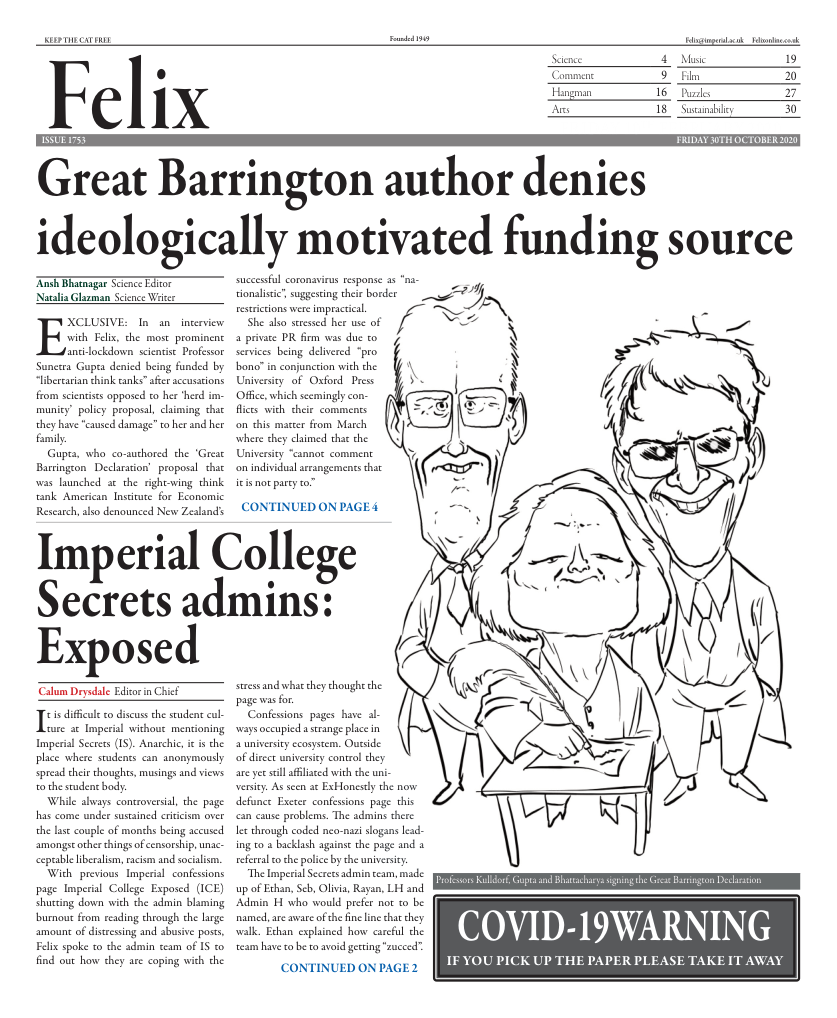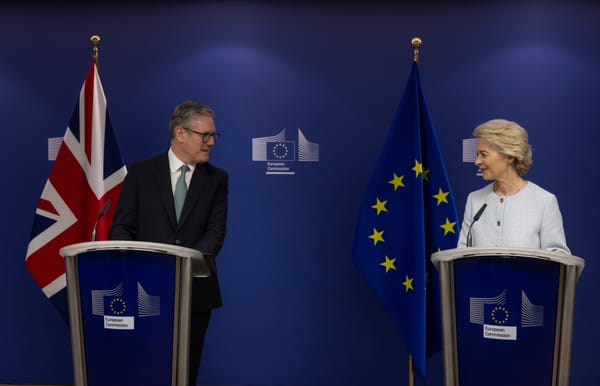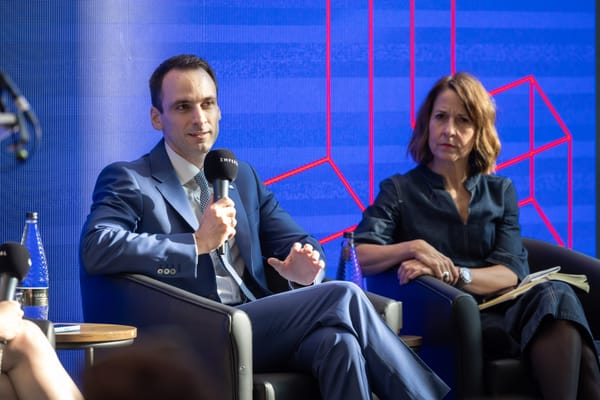Making America Again
The race for the White House has begun in earnest, and while the world waits for the results, it's essential to understand the mechanism behind the voting process.




Mark Twain once joked that “if we would learn what the human race is at the bottom, we need only observe it in election time.” “If voting made any difference,” he sullenly wrote elsewhere, “they wouldn’t let us do it.” Putting such scornful reflections aside, elections are, and have always been, the lifeblood of American democracy, embodying the bedrock premise of American political culture that legitimate rule derives from the acquiescence of the governed. The race for the White House has begun in earnest, and while the world waits for the results, it's essential to understand the mechanism behind the voting process.
America at the Ballot:
Americans don’t directly vote for the Presidential candidates, instead, they vote for people called "electors" in their state who are supporting the candidate they wish to become President - this ‘assemblage’ is known as the electoral college. The electoral college was created by the Founding Fathers in the year 1787; it was a compromise between electing the president by a vote in Congress or electing through a popular vote by qualified citizens. The college came into existence because the delegates wanted to balance the interests of high-population & low-population states, they also believed that not all voters would be educated enough to cast a vote so the electoral college would act as a buffer between the people and electing the president.
The more people that live in a state, the more electors there are. Presently, there are 538 electors in total, made up of 435 Representatives (Congressmen & Congresswomen) and 100 Senators, plus the three additional electors from the District of Columbia. Each state is allowed a minimum of three electoral votes, and Washington DC also gets three-body votes, forming a total of 538 electors. The candidate with the most number of electors wins all the state's body votes and also the first candidate to win enough states and to get to 270 electoral votes is elected into the office. California, considered to be the most crucial state, has 55 electoral votes, while Texas, the next largest, gets 38 electoral votes. New York and Florida get 29 votes each. All but two states – Maine and Nebraska – use a winner-takes-all system (“Winner takes all” means all Electoral College votes will go to one candidate based on the State’s popular vote), so if someone wins the foremost votes during a state, they take its entire haul of body votes.
To be elected President, either candidate must win a majority of the 538 electors - i.e. 270 electors. The body system does usually reflect the popular vote (the popular vote is simply which candidate has received the most total votes) – Presidents have won the electoral vote while losing the popular vote. A recent instance was in 2016 when Donald Trump won the body and was elected President, even though Hillary Clinton, his Democratic opponent, won the popular vote. The casting of a vote for the Presidential Election may be a simple choice between candidates from the Democratic Party and the Republican Party, although, occasionally a 3rd party candidate throws their name in the hat, like Kanye West this year, it's quite rare for them to get any traction or make some major impact.
So when Americans will cast their vote on November 3rd, they would technically be voting for "electors", not directly for the Presidential Candidates themselves. Each elector then casts one vote following the final election for one of the two candidates (here, Trump and Biden). The newly elected president and vice-president are said to be inaugurated on January 20, 2021, although the date isn’t set in stone, given the fact that a significant number of people have mailed-in their votes, so counting & results would be done a little differently, owing to the pandemic.
The key for either party to win the Presidential Election is by focusing on the specific swing states, also known as the battleground or purple states. Swing states can shift between each election cycle, and they are often determined by analysing past results, opinion polls, political trends and any strengths or weaknesses of the candidates involved, and their policies. These states have unclear party loyalties and have historically swung between voting for Republican and Democrat candidates in past elections. This year North Carolina, Florida, Michigan, Wisconsin, and Arizona could all be decisive within the election's outcome. They're all states in which Mr Trump narrowly won against Hillary Clinton in 2016, helping him secure his Presidency. Retaining them is crucial to his re-election hopes. If the polls are to be trusted, Mr Biden holds a competitive edge over Mr Trump altogether. Pollsters attributed Mr Biden's result in support among white university-educated voters, while Mr Trump's support among white working-class voters is waning. Currently, the 10-poll average indicates that just over 1/2 Americans will back Mr Biden while Mr Trump’s support trails this by around five or six points.
Donald Trump v/s Joe Biden 2020 Key Policies:
CLIMATE CHANGE:
Mr Trump is a climate change sceptic and has systematically dismantled environmental regulations put in place by former President Barack Obama — and actively defends his decision to exit the Paris climate accord, which would have, in his estimation, sacrificed “tens of millions of jobs, thousands and thousands of companies.” He also expresses unreserved support for fracking, a process for extracting natural gas, and he wishes to expand on non-renewable energy and questions the practicality of alternative energy sources — especially wind power — over fossil fuels.
“We are energy independent. I know more about wind than you do,” - Mr Trump to Mr BideN
Mr Biden, on the other hand, supports the universal ban on fracking, says he is committed to a ban on “fracking on federal land.” He plans on taking steps to confront environmental racism, and to protect people, especially in minority communities, who “live near chemical plants and refineries that pollute.” Mr Biden has laid out an ambitious climate plan which includes overhauling the country's energy industry to achieve 100 per cent emissions-free power by 2035. The plan includes a pledge to invest $2 trillion in clean-energy infrastructure if Mr Biden wins the White House in November, along with a promise to build 1.5 million new energy-efficient homes and social housing units. In a nod to liberal voters, who have been somewhat unenthusiastic about Mr Biden's candidacy, the Democrat said the expansive climate plan will be funded by a mix of government funding and increasing the corporate income tax rate from 21 to 28 per cent to ask "the wealthiest Americans to pay their fair share". Although, he has shied away from mentioning a ban on fossil fuels such as oil, coal and gas - a politically sensitive topic in battleground states like Pennsylvania and Michigan - instead, focusing on incentives for car manufacturers to produce zero-emission electric vehicles.
CORONAVIRUS:
Mr Trump has time and again downplayed the severity of the surge in covid cases, amidst a pandemic, he has ignored the advice of scientists and physicians and has peddled unsound and dangerous medical ideas. Mr Trump did not call for social distancing or the use of facial coverings, despite evidence that such measures reduce the spread of the disease. He made misleading claims about the speed with which a vaccine would be available to the public but offered a less optimistic timeline when pressed by the moderator, Kristen Welker of NBC News.
Mr Biden wants to set up a national contact-tracing programme, establish at least 10 testing centres in every state, and provide free coronavirus testing to all. He supports a nationwide mask mandate, which would require face coverings to be worn on federal property.
HEALTHCARE:
President Trump wants to repeal the Affordable Care Act (ACA) passed under President Obama, which increased the federal government's regulation of the private health insurance system, including making it illegal to deny coverage for people with pre-existing medical conditions. He says he wants to improve and replace it, although no details of the plan have been published. The President also aims to lower drug prices by allowing imports of cheaper ones from abroad.
Mr Biden wants to protect and expand the ACA. He wants to lower the eligibility age for Medicare, the policy which provides medical benefits to the elderly, from 65 to 60. He also wishes to provide all Americans with the option to enrol in a public health insurance plan similar to Medicare.
“I think health care is not a privilege, it’s a right,” - Mr Biden
ECONOMY:
President Trump has pledged to create 10 million jobs in 10 months, and create one million new small businesses. Mr Trump also promises to build on the tax cuts he introduced in his first term, including tax cuts and credits to entice companies to keep jobs in the US rather than overseas. Mr Trump said he will "enact fair trade deals that protect American jobs", but hardly mentions how he sees his trade war with China progressing.
Mr Biden says he will raise taxes on the wealthiest Americans, which he defines as those with an income of more than $400,000 per year (the top 1-2 per cent). He wants to impose a marginal tax rate increase – so the more a worker earns over that threshold, the more tax they must pay. He supports raising the federal minimum wage to $15 (£11.50) an hour from the current rate of $7.25 (£5.50).
CRIMINAL AND RACIAL JUSTICE:
"I'm the least racist person in the room" - Mr Trump
After continuously stoking the fires of white supremacy, President Trump has promised to address the growing racial unrest by ensuring to "defend" America's police forces in the wake of growing protests against instances of police brutality towards African-Americans. Mr Trump says he doesn't believe racism is a systemic problem within US police forces, and his campaign promises to protect police funding and hire more officers, increase punishments for attacks on police, and take action against political protest movements. The law and order promises also include tough action on illegal immigration and stronger requirements for legal immigrants.
“The fact of the matter is, there is institutional racism in America,” - Joe Biden
Mr Biden calls for broader access to education, health care and wealth for those who have been denied the opportunity. He also advocates for rehabilitation rather than jail for people convicted of drug-related offences and emphasises the need to get rid of mandatory minimum prison sentences.
"Most of the globe will breathe a sigh of relief if Biden is elected," said Stubb, now director of the varsity of Transnational Governance, at the ECU University Institute in Florence. "But I believe we must always all be realistic and understand that we're not going back to the supposed good old days — either way, I do not think American power will return to what it had been."
The entire world is watching the Presidential Race and is trying to figure out what the result will mean for them, every U.S. presidential election has sway on international affairs; the winner despite everything becomes the leader of the world's largest economic and military power. For some, President Donald Trump has ushered in a very new style of politics that they fully support. For others, a Joe Biden victory would be warmly welcomed. In Europe particularly, Trump is extremely unpopular in most countries. Countries like the Asian nation, China and Asian countries could find that a Biden victory would mean closer scrutiny of their human rights records and military actions. The US Director of the National Counterintelligence and Security Center last month warned foreign states were using “covert and overt influence measures” to sway the vote in their favour. His statement asserted that Russia wants to damage Joe Biden. But it also claims China doesn’t want Donald Trump returned to power. Beijing, he says, “prefers that President Trump – whom Beijing sees as unpredictable – does not win re-election”, and has been “expanding its influence efforts” ahead of the November vote. Meanwhile, Russia has been attempting to “denigrate” Biden while “seeking to boost President Trump’s candidacy on social media”. In Iran, many are probably hoping for a Biden victory, a brand new nuclear deal and relief from the crippling sanctions that Trump introduced.
This really is the most important election in US History. The difference between a second Trump term and the election of Biden will have enormous consequences, especially for Washington’s involvement in the world. It's kind of a fulcrum moment, if Trump is re-elected, American democracy would cease to exist, and even if Biden is elected, US recovery will be a long time coming.
“One term is bad enough, but if Trump is reelected, Americans and people around the world would no longer be able to say the American electorate made a mistake. Instead, it would be an affirmation this is the direction Americans want to go.”
Didn’t want to exist in an era where Borat was an acute political satire but here we fucking are I guess but despite the constant negative vibes covfefe.





